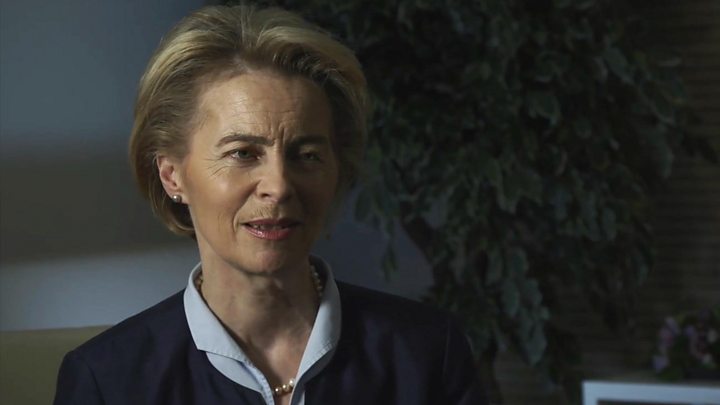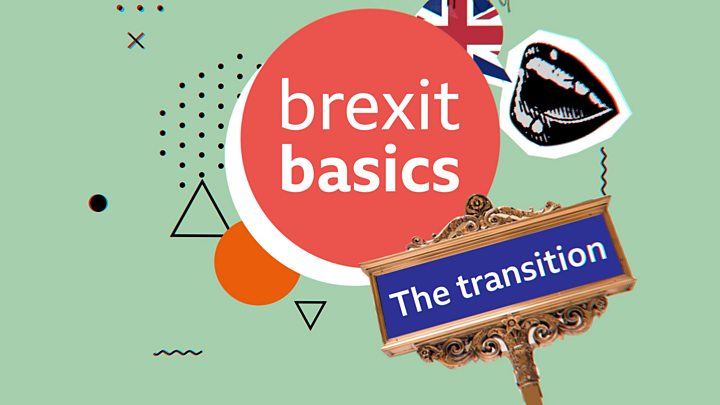As Brexit dawned, I found myself reporting for the BBC from outside the glass and concrete behemoth otherwise known as the European Commission building, in Brussels.
It's the same place I've regularly stood over the past three-and-a-half years, attempting to explain the EU perspective on Brexit following our referendum and throughout the divorce negotiations.
It struck me that the impersonal, impenetrable-looking monolith embodies the image so many in the UK have of the EU as a whole.
But going through my mind on Friday night were all the "ordinary" Europeans I've met across the continent while covering the Brexit story: engineers, teachers, bakers and bus drivers who asked "Why are you doing this?" and insisted: "Don't leave!"
Whilst never the most enthusiastic member, the UK was part of the European project for almost half a century.
Behind closed doors and away from gaze of the UK's more eurosceptic media, we were known for playing a big part in launching some of the bloc's most ambitious projects: the single market, the single currency (though we then opted not to join the euro) and the EU's enlargement eastwards.
- Bells and bunting for Brexit, or shedding a tear?
- Seven things Brexit will change and seven it won't
- 12 moments in the UK-EU relationship
On a personal level, EU leaders tell me they'll miss having the British sense of humour and no-nonsense attitude at their table.
If they were to be brutally honest, they'd have admitted they'll mourn the loss of our not-insignificant contribution to the EU budget too.
But now we've left the "European family" (as Brussels insiders sometimes like to call the EU) and as trade talks begin, how long will it take for warm words to turn into gritted teeth?
On the eve of Brexit, the President of the European Parliament, David Sassoli, pledged the EU would always act "with a sense of brotherhood" towards the UK.
But familiarity can breed contempt. Whether family feuds or lovers' quarrels, aren't some of the deepest rifts between people who once shared the closest of bonds?
Ministers in Boris Johnson's government wonder aloud why the EU demands they sign up to free trade agreement conditions the EU didn't impose on others like Canada or Japan.

But Canada and Japan aren't family for the EU. They don't share the same intimate history or geography. They don't pose the same threat of overnight, on-the-doorstep serious competition.
So when EU leaders tell the freshly-Brexited UK that they love them but they'll do them no favours across the negotiating table, they mean it.
And it's not just about business and economics. Brussels feels defensive about Brexit because some see it as a significant EU failure that the UK couldn't be persuaded to stay.
In almost the same breath as telling me how emotional she felt about the UK's departure this week, European Commission President Ursula von der Leyen told me that Brexit has also had a very positive effect on the EU.
It's helped unify the member states, she told me. She argued it was clear Brexit could not solve big problems like climate change, so it was evidently better to stick together.
The EU's lead Brexit negotiator and go-to man on EU-UK trade talks, Michel Barnier, told me that Brussels had lessons to learn from Brexit.

He said the EU had many regions similar to the North East of England that felt underfunded and overlooked and believed, he said, that the EU did not protect them from the effects of globalisation. The EU must listen more to European voters, he concluded.
Eurosceptism remains alive and well across the EU, though the temptation to leave the bloc evident in Italy, France, Sweden and elsewhere back in 2016 has all but disappeared.
Eurosceptic politicians like Italy's Matteo Salvini and France's Marine Le Pen are watching the UK closely. They say they hope Brexit will be a huge success and that talk of Frexit, Italexit, Swexit will return to Europe's front pages once again.
https://www.bbc.com/news/world-europe-51329353
